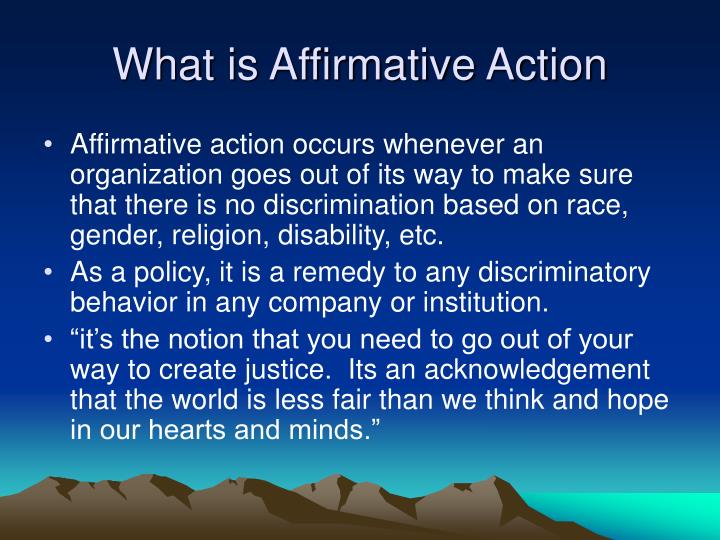

One legal expert laid out a simpler solution that wouldn’t require justices to mull over the constitutional questions associated with affirmative action. Data from these states … undermines Grutter’s assumption that diversity cannot be achieved by any other means or only by alternatives that come at an intolerable educational cost,” the amicus brief read. “Nine states have resisted the temptations of race-based admissions and, often by popular referendum, legally barred universities in their state from engaging in such discrimination. They argued that states without affirmative action still have diverse student populations, and that affirmative action discriminated against Asian students. Oklahoma Attorney General John O’Connor and 18 other Republican state attorneys general joined an amicus brief urging justices to overturn Grutter.

Some attorneys argued flaws with the case justified overturning it. Bollinger, a 2003 decision which held that universities’ use of racial preferences in admissions did not violate the Fourteenth Amendment or the Civil Rights Act. The Supreme Court ruled on affirmative action previously in Grutter v. Government increases opportunity by tearing down government-imposed barriers to achievement, not by doling out preferences on the basis of race,” Fa told TheDCNF. “The Constitution demands that the government treat individuals as individuals and not as members of arbitrary racial groups. Wen Fa, the counsel of record in Pacific Legal Foundation’s amicus brief, also believed the court could strike down affirmative action on constitutional grounds. “This case is the right time to restore the promise of the Fourteenth Amendment and end racial discrimination,” he said. “In no other circumstance besides higher education does the Supreme Court tolerate this sort of overt racial discrimination,” Daniel Suhr, managing attorney at the Liberty Justice Center and counsel of record in an amicus brief in support of SFFA, told TheDCNF. This would mean striking down the admissions programs of Harvard and UNC as unconstitutional because they discriminate without narrowly tailoring their policies to achieve a “compelling interest” the policies fail what is known as the “strict scrutiny” test, according to Morenoff. Several legal experts said the court should rule affirmative action unconstitutional under the Fourteenth Amendment, which grants equal protection under the law regardless of race. “ could rule that both UNC and Harvard have violated Title VI of the Civil Rights Act of 1964 through their race-based admissions schemes, either because of the plain meaning of the statute or because the Supreme Court’s case law, for decades, has said that Title VI bars the same racial discrimination by all federal funding recipients that the 14th Amendment bars state governments and their subdivisions from pursuing,” Morenoff told The Daily Caller News Foundation. Justices could potentially overturn court precedent by ruling that such affirmative action programs violate the Fourteenth Amendment or federal civil rights law.Ībortion rights will be gone this term, affirmative action will be gone next term, and today’s Ted Cruz decision suggests campaign finance caps could be gone soon enough, as Kagan hints at in the dissent: /ggIQJr2tTIĭan Morenoff, counsel of record in the American Civil Rights Project’s amicus brief, explained arguments justices could use to strike down affirmative action programs. Harvard, in which the plaintiffs allege Harvard’s admissions racially discriminate against Asian Americans, during its 2022-2023 term. The court will decide whether admissions programs that consider race at Harvard University and the University of North Carolina (UNC) are lawful in Students for Fair Admissions (SFFA) v. The Supreme Court is currently considering a case challenging the consideration of race in college admissions, and amicus briefs filed by plaintiffs reveal how the court could rule. This article by Laurel Duggan was published on.


 0 kommentar(er)
0 kommentar(er)
